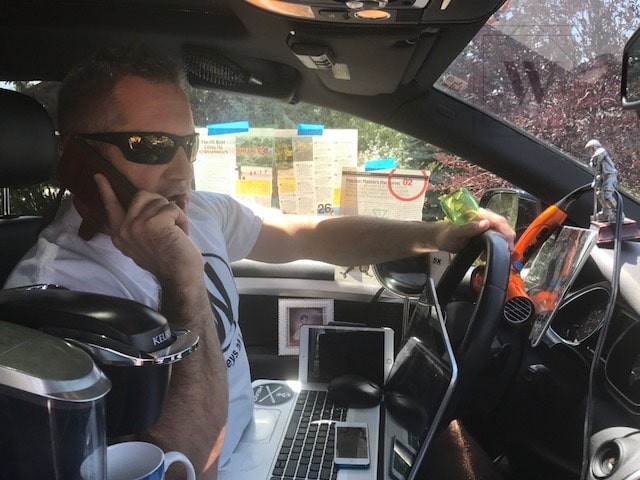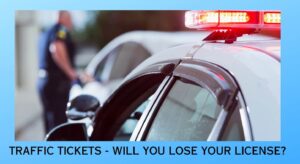
Drivers beware! You may be violating the rules of the road.
Washington has a new Distracted Driving Statute (SSB 5289). Most articles and posts have been inaccurate in their analysis of the Statute.
The Statute makes two distinct actions unlawful. The first newly unlawful conduct is everything to do with cell phones. The second is everything that the State deems to be “Dangerously Distracting.” Below are the relevant excerpts from the Statute that describe what conduct is unlawful:
- Changes to the Cell Phone Laws
A person who uses a personal electronic device while driving a motor vehicle on a public highway is guilty of a traffic infraction and must pay a fine as provided in RCW 46.61.110(3). This section will not apply to people who are (1) using the device to report an emergency, (2) employed by the Transit Authority and using it for business purposes, (3) commercial vehicle drivers who are using the device under the scope of their employment and (4) operating an authorized emergency vehicle.
“Uses” means “holding a personal electronic device in either hand or in both hands. Using your hand or finger to compose, send, read, view, access, browse, transmit, save, or retrieve email, text messages, instant messages, photographs, or other electronic data and watching video. However, this does not preclude the minimal use of a finger to activate, deactivate, or initiate a function of the device.”
“Personal Electronic Device” means “any portable electronic device that is capable of wireless communication or electronic data retrieval and is not manufactured primarily for hands-free use in a motor vehicle. Personal Electronic Device includes, but is not limited to, a cell phone, tablet, laptop, two-way messaging device or electronic game.”
“Driving” means “operating a motor vehicle on a public highway, including while temporarily stationary because of traffic, a traffic control device, or any other momentary delays.”
- Dangerously Distracted
This second section is a new law and it is written open-ended and very broad in scope. It reads that “it is a traffic infraction to drive dangerously distracted.”
“Dangerously Distracted” means that a person “engages in any activity not related to the actual operation of a motor vehicle in a manner that interferes with the safe operation of such motor vehicle.”
“Dangerously Distracted” means that a person “engages in any activity not related to the actual operation of a motor vehicle in a manner that interferes with the safe operation of such motor vehicle.”
Driving “Dangerously Distracted” is a secondary offense, which means that you would have to be pulled over for a separate infraction, speeding for example, and then law enforcement can add the “Dangerously Distracted” infraction on top of the Speeding as a second count.
Effects Of This New Statute
With this new Statute going into effect on July 23, 2017, the other similar (but less severe) Statutes are being going away. RCW 46.61.667 – Cell Phone Use While Driving and RCW 46.61.668 – Text Messaging While Driving are being repealed and have an end date of July 22, 2017.
Another change is the reporting of this new infraction. While the old cell phone violations were not reported or made available to insurance companies, by operation of law, the Distracted Driving violations are going to be reported to Washington Courts, SECTOR users (meaning law enforcement), and the Washington Association of Sheriffs and Police Chiefs.
Interpretation of this new Statute is the largest concern that we have. Nearly all the news coverage that this Statute has received describes “eating, drinking, grooming, embracing, smoking… as if those actions are enumerated in the Statute. They are not. Nowhere in the Statute are these actions listed. That is the troubling part. The “Distracted Driving” section is written so broadly that law enforcement may actually believe that these things are now unlawful. And maybe they are. The Statute is written so broadly that everything that law enforcement wants to allege is “distracting” probably falls within the parameters of the Statute. Under what we assume is law enforcement’s interpretation, there is nothing to preclude that use of your radio or talking to your passenger is not “distracting.” The Statute creates more questions than it offers concrete answers. It is a blank check for law enforcement to write this ticket.
Additionally, the fines go up each time an offender receives one of these tickets. The base price is $136 and a second offense is $234.
By now, law enforcement has been putting pen to paper and citing people with this new infraction. When the time arises, will be challenging it in Court. Our defense will be “Overbroad”, but that is a blog post for another time.
Witt Law Group is a personal injury and criminal defense law firm. We handle infractions as well as criminal defense and personal injury cases. We take cases in Pierce and Kitsap Counties, with an offices Bremerton and Gig Harbor for your convenience. Call our office at (360) 792-1000 or fill out our online contact form. We can answer your calls in the evenings or on weekends. If you are on the receiving end of this new ticket, or any other personal injury or criminal defense issue, please give our office a call.

Get help now
Whether you choose to handle your case alone or engage the Witt Law Group, being informed and prepared is essential. Early involvement of an attorney can significantly impact your chances of a fair recovery, allowing you to focus on healing while we handle negotiations with insurance adjusters to secure fair compensation for your injuries.




